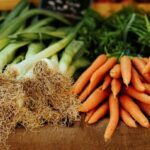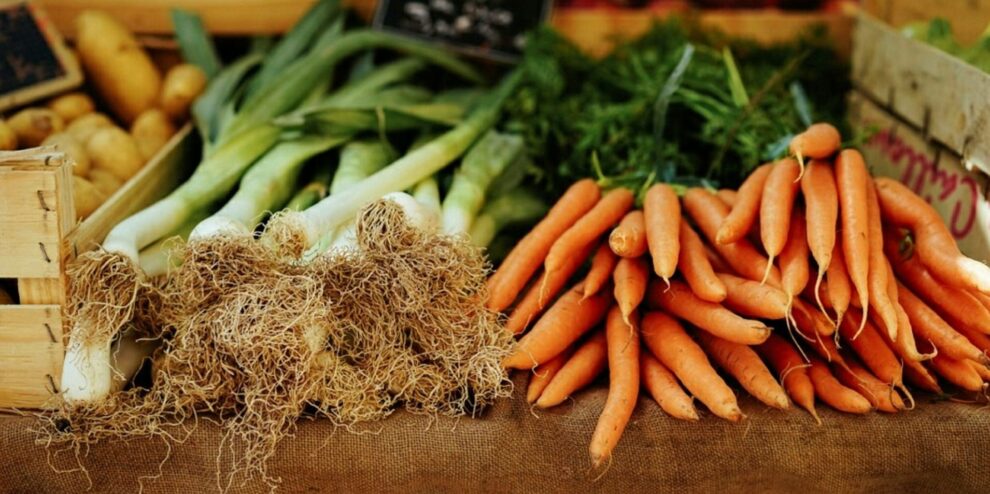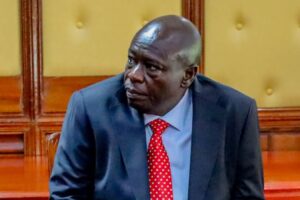World Food Day, observed on 16 October, highlighted the critical need for action to ensure the ‘right to food for a better life and a better future’. The newly launched Africa-Europe Cluster of Research Excellence in Sustainable Food Systems (CoRE-SFS) is poised to play a key role in achieving this goal.
The cluster, which is co-led by the University of Pretoria (UP) in South Africa and the University of Bologna (Unibo) in Italy, brings together 21 partners across two continents in a collaboration that aims to “revolutionise research and education in sustainable food systems”.
This makes the CoRE-SFS one of the largest clusters in the Africa-Europe CoRE initiative – a joint project that the African Research Universities Alliance (ARUA) and The Guild of European Research-Intensive Universities introduced last year to tackle acute societal needs affecting both continents.
The CoRE-SFS was one of the first clusters formed in June 2023. It spent its first year creating a 10-year action plan, mapping out a governance structure and seeking funding, before holding its formal launch at UP with a two-day workshop on 3 and 4 October this year.
This was shortly after the inaugural Africa-Europe CoRE conference at Stellenbosch University (SU), also in South Africa.
‘Wicked’ problems
The CoRE-SFS is built on the understanding that food-systems challenges are ‘wicked’ problems – complex and interconnected issues requiring an interdisciplinary and collaborative approach, Professor Frans Swanepoel, the co-director of the cluster, told University World News in an exclusive interview.
He is also the Future Africa Research Chair in Sustainable Food Systems at UP.
A guiding framework used by the cluster reads: “There is no single African food system. With over 2,000 languages, 3,000 ethnic groups, and 54 countries, the continent contains a diversity of food cultures and food environments.
“At the same time, the drivers and components of any food system are part of a worldwide food regime that encompasses the biosphere, a globalising political economy and cultural globalisation.”
This diversity, coupled with the pressing need to address issues like poverty, health and climate change, necessitates a holistic approach.
Plan to transform food systems
The cluster’s main ambition is “to become the reference for collaborative research between Africa and Europe in the agricultural and food sectors.”
It will be pursuing this vision by:
• Fostering research excellence to answer sustainable food-systems challenges; and
• Educating a new generation of scientists.
It hopes to make an impact in three main areas:
• Food, nutrition and health;
• Poverty reduction, sustainable livelihoods, and jobs; and
• Climate-smart agriculture.
Two cross-cutting enablers will enhance this impact:
• Digital technologies and data science; and
• A focus on gender, youth and social inclusion.
The CoRE initiative’s horizon of 10 years – a long-term commitment for projects of this nature – provides participants with stability and the opportunity to build strong, lasting collaborations.
Collaborative research
Professor Luca Fontanesi, co-director of the CoRE-SFS, highlighted the importance of collaboration in addressing food-systems challenges, also in an interview with University World News. He is attached to the department of agricultural and food sciences at Unibo.
“We strongly believe that collaboration in Africa and with Africa can bring new developments and new benefits in our field, not only for African countries but also for Europe,” he said.
Equitable partnerships
The CoRE initiative of ARUA and The Guild is committed to fostering equitable partnerships between African and European institutions. This is reflected in the composition of each cluster, which is not only co-led by researchers from both networks but also has participants from both continents and beyond.
This emphasis on equitable partnerships is crucial for ensuring that the CoRE-SFS generates research that is relevant to all stakeholders.
“ARUA was set up so that we could collaborate among ourselves in Africa, and now we have extended that to Europe because we face common challenges,” Professor Bolanle Oboh, a participant in the CoRE-SFS and the deputy vice-chancellor for academics and research at the University of Lagos, told University World News.
“It is no longer a case of the North taking the lead and the South just coming along. We are working together equitably because we have been intentional about it from the start,” Oboh said.
Before entering into a partnership with The Guild in the CoRE initiative, ARUA established 13 Centres of Excellence, including one in sustainable food systems. This structure (ARUA-SFS) lives on and feeds into the CoRE-SFS.
Developing future food-systems leaders
One of the main objectives of the CoRE-SFS is to produce a next generation of scientists working in the field of sustainable food systems. To this end, it has come up with an ambitious programme to admit 60 PhD candidates per year as part of ARUA’s stated intention to significantly boost the production of doctoral graduates in Africa.
“We need to revolutionise PhD education, especially in a critical area like sustainable food systems. This is crucial for driving positive socio-economic development in Africa,” Swanepoel said.
The cluster’s doctoral programme will “span geography and disciplines”. Students will be recruited from all ARUA partner institutions, while applicants from members of The Guild in Europe and from non-ARUA universities in Africa would also be eligible.
Masters students from any discipline related to food systems will be able to apply, including traditional agriculture disciplines, rural development, agricultural engineering, development studies, behavioural psychology, sociology, food and consumer sciences, geography, environmental studies, environmental law, and veterinary science.
‘Sandwich’ model for PhD training
The PhD programme will follow a ‘sandwich’ model over four years, as proposed by South Africa’s Human Sciences Research Council in its 2022 Synthesis Report: Towards African Collaborative Doctoral Programmes, which has been accepted by the ARUA Board.
Year 1 will consist of compulsory in-person coursework, initially presented at UP’s Future Africa campus. The aim is to provide students with competencies in six key areas – project management, responsible research, gender-responsive research, systems methodologies and approaches, as well as research impact and communication.
Also in Year 1, students will have to choose a thesis topic, develop their research proposals as applicable in an African context, and obtain the necessary ethical clearance.
Years 2 and 3 will be devoted to intensive research and fieldwork back at the student’s home institution. There will be opportunities for exchanges to partner institutions, as long as it is “focused on and located in Africa” because the intention is to grow a scientific workforce that can help achieve food-systems transformation on the continent.
Year 4 will consist of cohort-based supervision and support to the PhD candidates to analyse their data, have cohort seminars, and finalise their theses in a transdisciplinary way. This will again take place in-person at Future Africa, at least initially.
By the end of the last year, prior to graduation, students must have at least one article ready for publication in a reputable international journal, as well as at least one policy brief.
Strengthening supervisory capacity
The supervisory model will be based on a study committee approach. Each committee will be chaired by a suitably qualified academic representative from the ARUA-SFS, with two supervisors from different disciplines from Africa and two from different disciplines within a pool of global partners.
The CoRE-SFS is not only focused on training PhD students for Africa, but also on building the continent’s supervisory capacity, which is limited at the moment. It aims to leverage expertise based at European universities to supplement supervisory capacity within African institutions.
The programme will provide opportunities for mid-career researchers in Africa who have not had extensive experience supervising PhD students to do so under the guidance of more senior academics. This approach allows for the development of supervisory skills among early-career academics.
Innovative programme
The CoRE-SFS says its PhD programme will equip students with a comprehensive understanding of food systems, empowering them to conduct impactful research that addresses critical challenges facing Africa and the world.
By fostering transdisciplinary learning and connecting students with a network of experts, the programme will cultivate the next generation of researchers dedicated to building sustainable and equitable food systems.
This collaborative approach will strengthen research capacity within African institutions and position the cluster as a leader in international food-systems research.
Looking ahead
The CoRE-SFS represents a new era of collaborative research in sustainable food systems. By bringing together the expertise and resources of African and European institutions, the cluster is well positioned to make a significant contribution to addressing the complex challenges facing food systems on both continents and beyond.
















